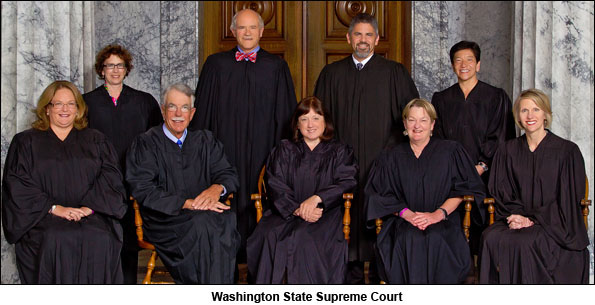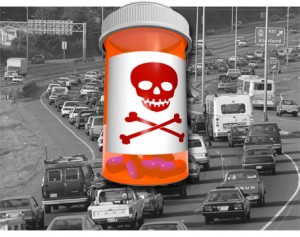OPINION
As sine die nears, values-based operating budget comes first
By JEFF JOHNSON
(April 21, 2015) — Sine die literally means to adjourn without assigning a day for further meetings or action. The Washington State Legislature is six days from sine die, but the work is not done. So we go into extra innings, overtime, or a Special or Extraordinary Legislative Session at a time determined by the governor.
We do this a lot. In fact, 18 times so far in this century. This should not be surprising. Negotiating a budget, or three, is difficult work. It becomes more difficult when there are wide ideological chasms between the negotiators.
One thing, however, is clear. The Washington State Supreme Court has held the state in contempt over funding for basic education and mental health. The court has ruled that the state is not meeting our basic education needs and that we need to significantly increase our funding forthwith.

What is less clear is what actions the Supreme Court can take if an operating budget is approved that continues to fail our basic education obligations. Can the court make the whole budget null and void? Parts of budget? Eliminate tax exemptions? Withhold legislators’ salaries? Hopefully, we won’t have to find out.
Passing meaningful transportation and capital budgets should be pretty straightforward.
Both the House and the Senate transportation proposals, minus ideological hang-ups (more on that in a moment) come in at about the same size and cost. Both budgets invest in the maintenance and preservation of our roads and bridges, complete major economic corridors, fund a new ferry and freight mobility, and invest in mass transit, safe streets, and storm water clean-up.
One difference in funding is the Senate’s use of sales tax on transportation projects. In an opinion column in (Tacoma) News Tribune, Rep. Hans Zeiger (R-Puyallup) said he supports “the use of sales tax on transportation projects for transportation projects, rather than welfare or prisons.”
That he didn’t choose funding the homeless, the developmentally disabled, or those needing long-term home care as the comparison points is telling and part of the problem. While we have mandate from the Supreme Court to fund basic education our revenue base is far too narrow and inadequate to accomplish both this and fund the myriad of other safety net programs to protect Washingtonians.
To further divert needed sales tax revenue from the operating budget is wrong. We need more revenue to meet the needs of our state. It would be irresponsible to divert sales tax revenue to transportation projects unless we had adequate operating budget revenue to fund basic education, mental health, other state services and fully funding state employee contracts.
 Of course, the two transportation packages also differ in that the Senate package contains a poison pill that makes all mass transit dollars over the next 15 years contingent on no executive branch activity on a clean fuels standard.
Of course, the two transportation packages also differ in that the Senate package contains a poison pill that makes all mass transit dollars over the next 15 years contingent on no executive branch activity on a clean fuels standard.
Regardless of one’s belief about climate change, this is wrongheaded in so many ways. Carbon pollution from the transportation sector accounts for 50% of our greenhouse gas emissions, which has a significant and costly impact on human health and our state operating budget.
The poison pill, apart from being a violation of the separation of powers, holds hostage funding for transit that helps lower emissions to any policy that would allow lowering emissions by creating cleaner fuel standards. This pits human health and carbon emissions against corporate profits.
This is not what people want when they say they want to see a wise investment of transportation dollars.
The capital budget should be and usually is a pretty straightforward budget that allows us to invest in our state’s future by improving any non-transportation infrastructure — affordable housing, public buildings, parks and recreation, cultural venues, clean and adequate water, etc. — while creating thousands of family-wage jobs, lowering our carbon footprint, and protecting our communities from floods, forest fires, and storm water runoff, etc. The great thing about the capital budget is that there are deserving projects in every county and legislative district in the state.
But while it is in the best interest of our state to pass robust transportation and capital budgets, it is critical to first pass a robust and meaningful operating budget. The operating budget is the budget that frames how state government interacts with the private economy. The operating budget is a moral document — it backs up the values we hold dear with the financing to make a difference and the commitment we have to Washington’s future.
It is clear to us that we need more revenue to adequately fund an operating budget that takes care of our state’s needs and the workers who provide these essential services. There are a number of revenue options on the table — capital gains, B&O tax reform, closing tax loopholes, and a carbon fee — to name just a few.
It is our hope that the budget negotiators can put aside ideological differences during the coming post sine die period and honestly address our state’s shortage of revenue. As a state we have limped along for the past three biennia, not meeting the needs of our people or of a growing economy. It is time to make the investments in people and the economy that have been on hold.

Either the Legislature can make these decisions or I guess we can look towards the Supreme Court. One place or another the people of Washington state will get justice.
Jeff Johnson is President of the Washington State Labor Council, AFL-CIO, the largest labor organization in the Evergreen State, representing the interests of more than 500 local unions and 400,000 rank-and-file union members.





